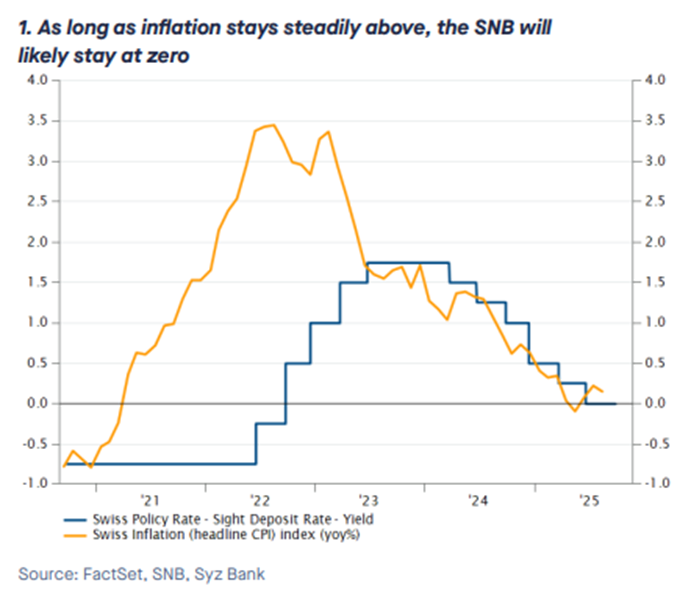Last Thursday’s modest pullback on Wall Street wasn’t driven by weak US macro data; quite the opposite. Economic releases surprised to the upside across the board. dropped to new YTD lows, confirming that the Texas-related spike two weeks ago was a one-off event.
rose for the fifth consecutive month. Q2 was revised sharply higher to 3.8%, the strongest reading in two years, fueled by an unusual surge in consumption. US also came in well above expectations.
So much for stagflation worries…
However, strong data turned into bad news for markets as traders scaled back expectations for two by December, now pricing in just 1.56 cuts versus 1.7 earlier in the day. This shift pushed both the and the higher. With equity valuations already stretched, rising bond yields could easily trigger some profit-taking in US stocks.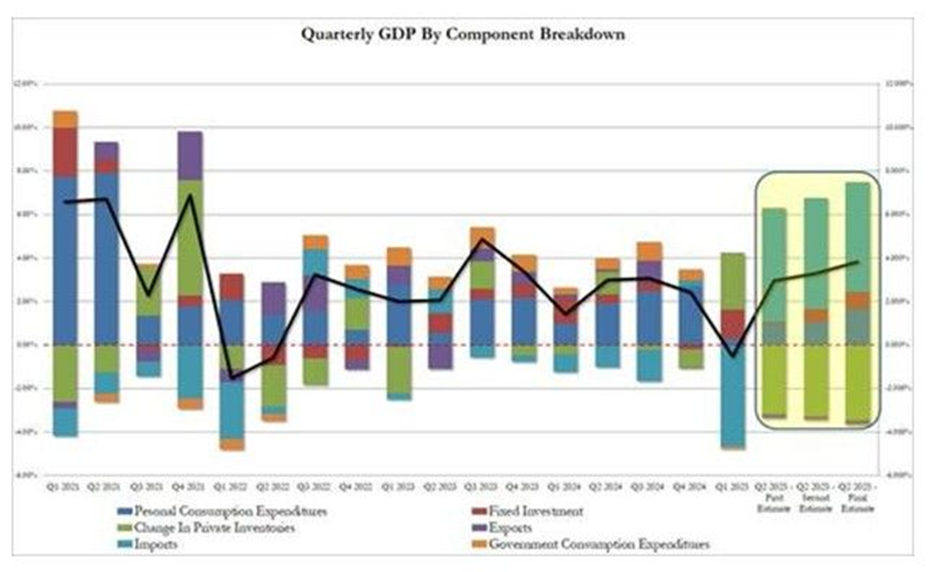
Source: Zerohedge
Americans Hold 22 of the Top 25 Global Companies
The seven largest firms worldwide are all American tech giants, collectively worth over $20 trillion. In fact, 22 of the world’s 25 biggest companies by market capitalisation are based in the United States.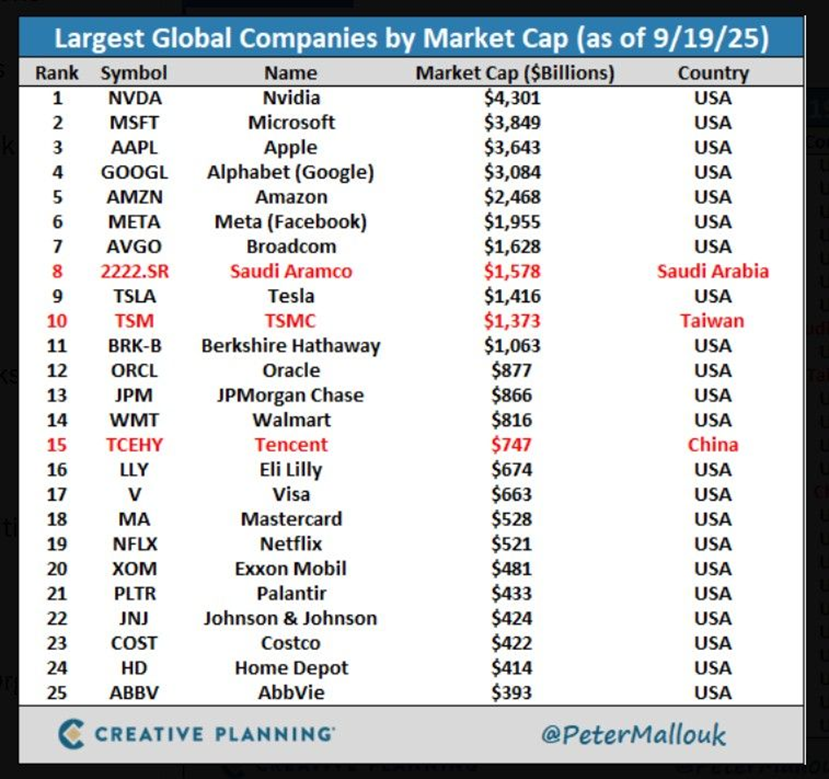
Source: Charlie Bilello
AI Is Carrying the Market
Since ChatGPT’s debut in November 2022, AI-linked stocks have surged by 181%, compared to just 25% for the rest of the . AI has been the primary engine behind the market’s strength, driving 75% of total index returns, nearly 80% of earnings growth, and an impressive 90% of all capex growth. Without this AI-driven momentum, the S&P 500’s rally would have been far more muted.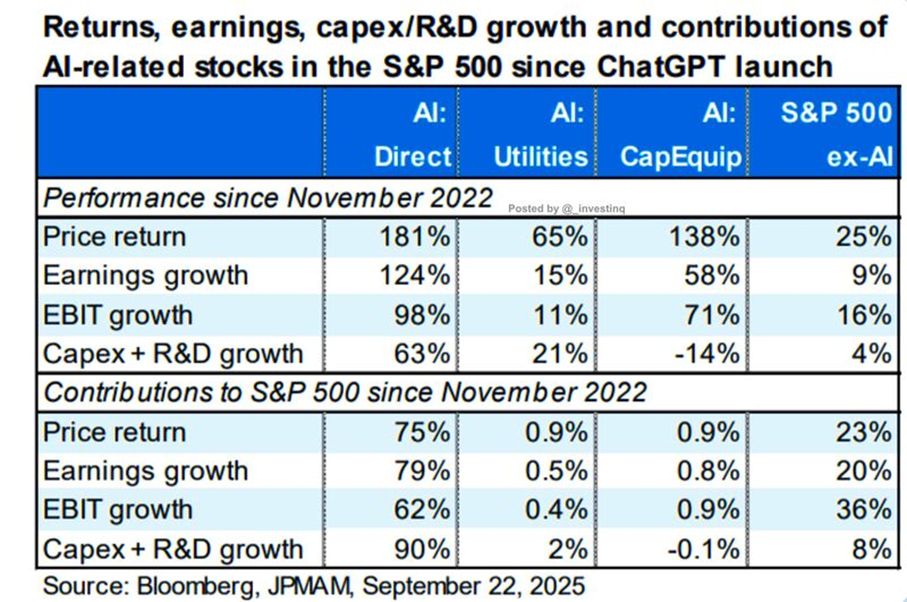
Source: StockMarket.news, JPAM
When “Build-A-Bear” Beat the Mag 7
What’s soft, cuddly, and has outperformed tech heavyweights like Nvidia (NASDAQ:), Palantir (NASDAQ:), and Microsoft (NASDAQ:)? Build-A-Bear Workshop (NYSE:).
The nearly 28-year-old mall retailer, best known for letting customers create and customise their own stuffed animals, has seen its stock soar more than 2,000% over the past five years, according to the Washington Post. That means $100 invested at the start of 2021 would now be worth around $1,600, roughly $200 more than the same investment in Nvidia.
After a steep sales drop in 2020, Build-A-Bear has staged an impressive comeback. In May, the company posted its best first-quarter results ever, with revenue up 11% to $128.4 million. Its success has been fueled by a surprising new market: adults seeking nostalgia and personalised experiences.
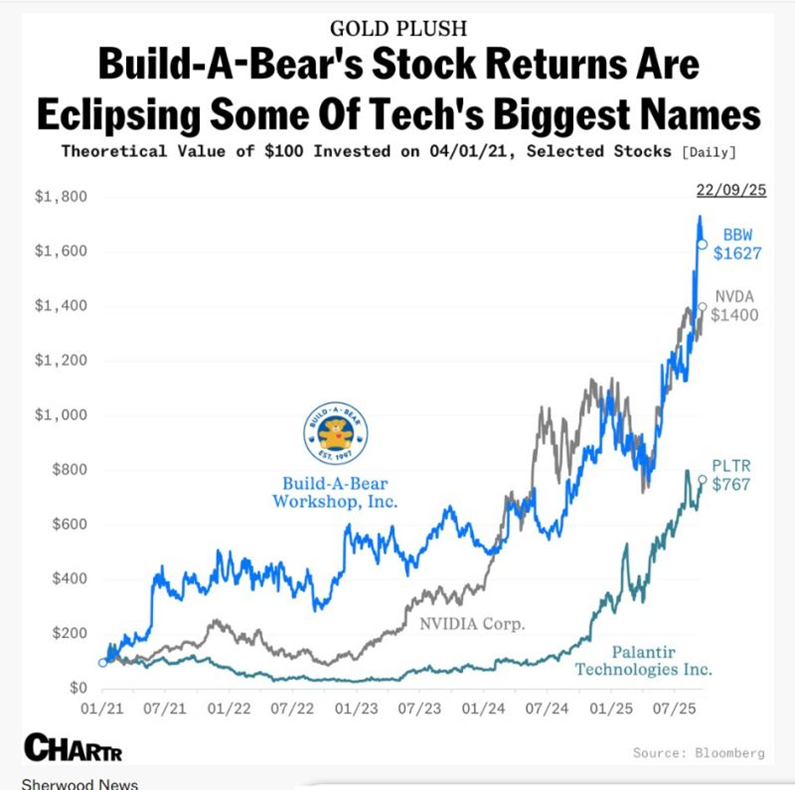
Source: Chartr
China Dominates Rare Earths Mined Production
China controls nearly 90% of global rare earth production, giving it enormous leverage over industries worldwide. The country has a history of using this dominance as a geopolitical tool, restricting exports when tensions flare. Any new tariffs could trigger retaliation, such as slower licensing, outright bans, or targeted disruptions, driving up costs and causing delays for automakers, electronics manufacturers, and magnet producers.
The ripple effects would extend far beyond these sectors. Higher input prices could fuel inflation and put additional pressure on already fragile global supply chains.
In response, the G7 and the EU are exploring measures to reduce reliance on China. Options under consideration include tariffs or taxes on Chinese exports, as well as price floors and subsidies to accelerate the development of alternative mining and processing capacity outside Beijing’s control.
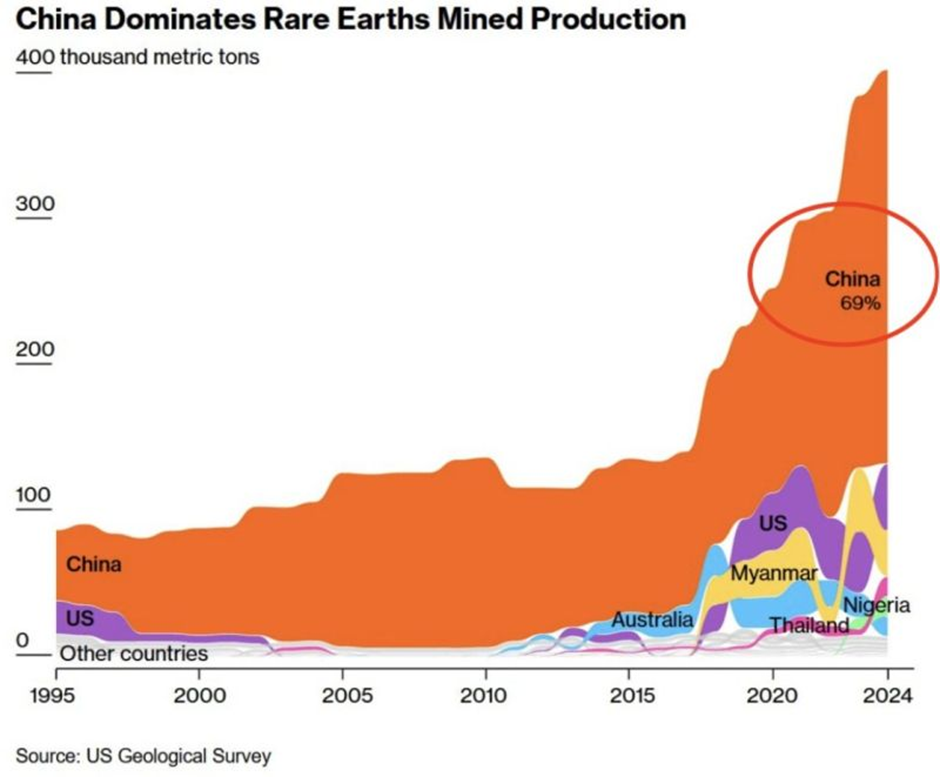
Source: StockMarket.news
Donald Trump’s Estimated Net Worth Hits An All-Time High
Donald Trump’s wealth has surged to record levels over the past year, according to Forbes. His cryptocurrency ventures, which had been relatively quiet before the election, skyrocketed after his victory, adding roughly $2 billion to his fortune in just ten months.
Additionally, a key legal win erased a $500 million judgment against him. Trump’s once-sluggish licensing business has also experienced a revival, generating another $400 million as foreign developers rush to partner with a sitting US president.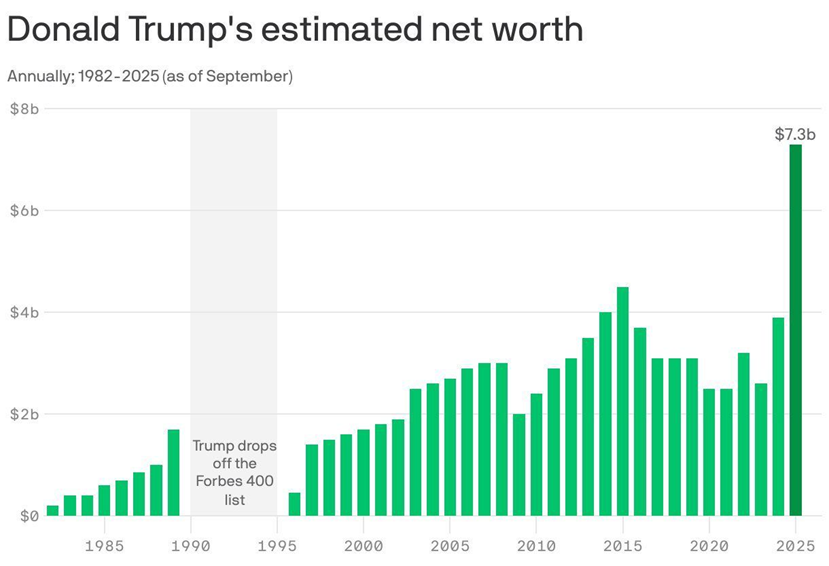
Source: Michel A.Arouet, Forbes
The Swiss National Bank Leaves Interest Rates at Zero
The Swiss National Bank is pursuing its monetary policy with a steady hand and leaves the key at 0%. This decision appears reasonable given the current economic and political situation and aligns with financial market expectations. The Swiss economy continues to perform relatively well despite the US tariff shock, core inflation remains within a healthy range, and the is also keeping key interest rates unchanged for now, with little indication of change ahead.
As a result, the has shown hardly any movement against the euro since the end of June. Since we currently anticipate fewer interest rate cuts by the US Federal Reserve than the market does, we also see less pressure on the SNB to reduce its key interest rate further. Hence, we do not expect any further changes to the SNB’s key interest rate until at least the end of this year, and likely not before mid-2026.